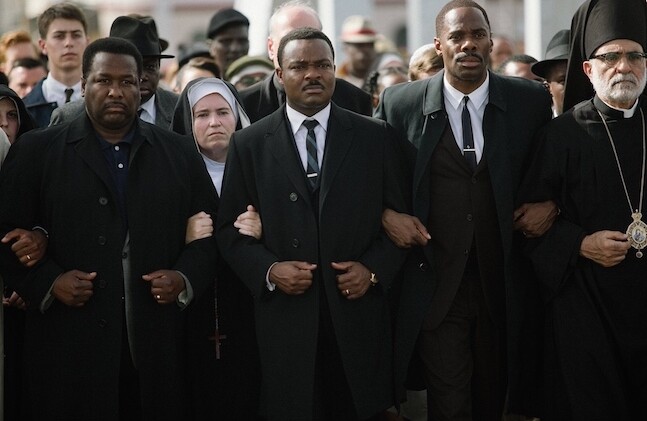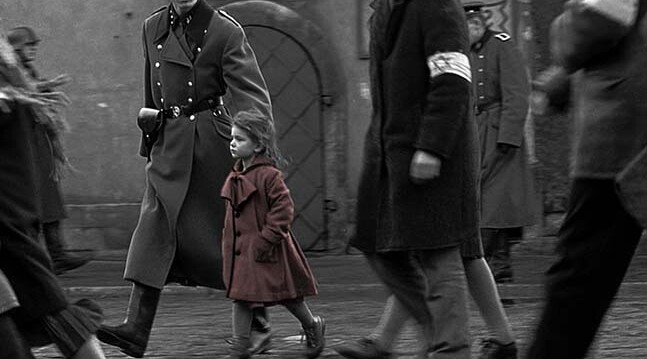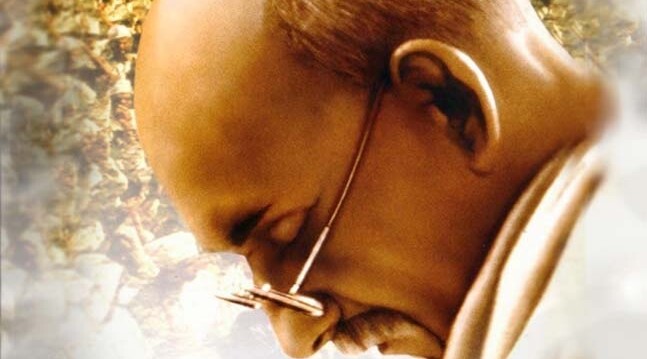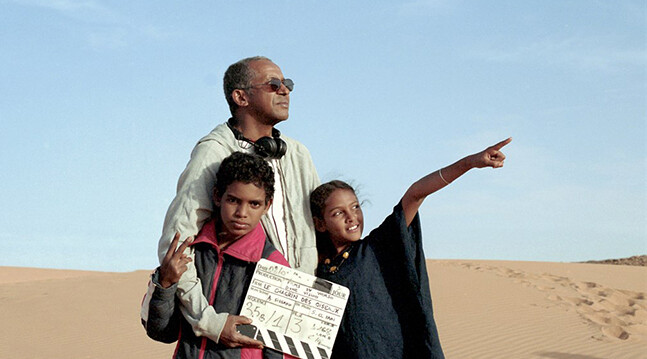Introduction
Martin Luther King, Jr. is one of those rare public figures with near-universal acclaim. Like Mohandas Gandhi or Nelson Mandela, his character is nearly unassailable and just the invocation of his name can be inspirational. Among Americans, he is in the same category as Abraham Lincoln or George Washington—one of the people who helped to build the society that we live in—and he has the rare distinction of being honored with a national holiday.
This exalted stature is not only because he fought for a just cause against an obviously repressive and racist society. It is also, maybe, because he has something for everybody. For liberals, progressives, African-Americans, and other minorities, his appeal is clear. But he also presented an ideal of Black America that was (and still is) much more palatable than Malcolm X's radical and sometimes violent vision. He didn't preach Black Power; he dreamed about whites and blacks living side by side, enjoying the same economic opportunities and, ultimately, respecting American institutions. He was also deeply religious and was, at least in how he was presented to the public, a devoted husband and father. So, it's also easy to see how he could appeal to conservatives and even the millions of white Americans who believe that reverse racism is a real issue today. President Ronald Reagan even referenced King's "I Have a Dream" speech in 1985 to argue against affirmative action.
Selma, an Academy Award-nominated 2014 film directed by Ava DuVernay, brings even more complexity to King. The movie shows him at home with his long-suffering wife Coretta (and confronts the adultery allegations head-on), during the planning of the rallies and marches in Alabama, and in the office of President Lyndon B. Johnson. It's a behind-the-scenes look at the Selma-to-Montgomery march and illustrates how and why King's strategy worked. The film also shows the devastating consequences of this civil disobedience and the countervailing forces on both sides. Seeing King in this way—as a human being, with flaws and doubts—will only add to his legacy.
Plot
Fittingly, the film starts with a private moment, loaded with symbolism, between King (David Oyelowo) and Coretta (Carmen Ojogo). In Oslo to accept the Nobel Peace Prize, King struggles, both to tie his ascot and to reconcile the luxuries that his worldwide celebrity now affords him with the poverty and desperation back home. "It's not right to be dressed so nice," he says to his wife.
From there we follow King as he sets out on parallel tracks: a series of meetings with President Johnson (Tom Wilkinson) on the need to pass the Voting Rights Act; and his endless work with the Southern Christian Leadership Conference (SCLC) as they plan a series of actions in Selma, Alabama, intending to force the issue of voting rights. Along the way, we see Coretta meeting with a surprisingly taciturn Malcolm X (Nigel Thatch); Alabama Governor George Wallace (Tim Roth) acting as the embodiment of racism in public and in private; and also how the family of Jimmie Lee Jackson (Keith Stanfield), a 26-year-old deacon who was murdered by Alabama state troopers after a protest, deal with everyday repression and police brutality.
These stories all center on King's strategy of "negotiate, demonstrate, resist" and how it plays out in Selma, Montgomery (Alabama's capital), and Washington. As we the viewers all know in advance, the march is a success and Johnson signs the Voting Rights Act. But the road to get there is not at all straightforward or easy. Protesters are beaten, marches are stopped and started, the unity of the civil rights movement is tested. Malcolm X acquiesces to the nonviolent forces and is then murdered. White people join the struggle and several of them are murdered. The FBI infiltrates King's marriage. Selma is quite literally a history lesson, but it feels more like a novel as it weaves together different storylines and (maybe a few too many) characters.
Negotiate, Demonstrate, Resist
While today King may be canonized as one of history's most important civil rights leaders, in the mid-1960s, many African-Americans were skeptical of his explicitly nonviolent tactics. The most radical activists, like Malcolm X and other leaders of the Nation of Islam, taught that white people were devils and advocated for the separation of races. Some groups, like the Black Panthers (who were not an official organization until 1966, after the marches), openly carried loaded guns and emphasized self-defense. Others, while not necessarily militant or separatist, still balked at King's overtures to the establishment.
Chief among the third group was the Student Nonviolent Coordinating Committee (SNCC). As their name implies, SNCC also decried violence, but, as the film tells it, they were focused on grassroots efforts exclusively in the black community. In King's mind, appealing to progressive white people and the most powerful politicians were a necessary part of the struggle. And the best way to do it, he thought, was through nonviolent civil disobedience, something that he was sure would lead to a violent response from the infamous Selma Police Department and Alabama state troopers. This, in turn, would get the attention of the national press and naturally sway average white Americans to the side of the bloodied grandmothers and scared teenagers.
This was a point that, according to the film, Malcolm X embraced and understood right before his death in 1965. Having split with the Nation of Islam in favor of the more traditional tenets of Sunni Islam, X seemingly realized that militancy and separatism were counterproductive to actually achieving results for African-Americans. In a clandestine meeting with Coretta while King was in jail after a protest at the Selma courthouse, X says, "Allow me to be the alternative that scares them so much they turn to Dr. King for refuge."
The LBJ Question
With obvious attention paid to sets, costumes, and dialogues, Selma is painstakingly crafted. The filmmakers were not given permission to use King's speeches, but they did everything else they could to transport the viewer to Alabama, 1965. This is what makes their decision to showcase President Johnson as a borderline villain almost inexplicable. The film shows Johnson pointedly and condescendingly stalling on the Voting Rights Act and colluding with the FBI to disrupt King's marriage. Where King was a pragmatist, Johnson is presented as an obstructionist.
In reality, though, while Johnson did advocate for incremental progress on civil rights, his archives show that he pushed for the strategy of protesting in Selma. In a phone call with King, recorded in January 1965 (three months before the marches), Johnson says:
If you can find the worst condition that you run into in Alabama, Mississippi, Louisiana, or South Carolina . . . If you just take that one illustration and get it on radio, get it on television, get in the pulpits, get it in the meetings, get it every place you can; pretty soon, the fellow that didn't do anything but drive a tractor will say, "that's not right, that's not fair." And then, that'll help us in what we're going to shove [legislation] through in the end.Former Atlanta Mayor Andrew Young, a friend of King's who is depicted in the film by Andre Holland, also questioned the portrayal of the Johnson-King relationship, noting that it was less tense in reality. However, in another interview Young did concede that the film got the events "90 percent right." The 10 percent that was missing, he said, was King's sense of humor.
Johnson advisor Joseph A. Califano Jr. and Johnson Library director Mark K. Updergrove were more forceful in their denunciations of the film. The latter wrote in Politico, "At a time when racial tension is once again high, from Ferguson to Brooklyn, it does no good to bastardize one of the most hallowed chapters in the Civil Rights Movement by suggesting that the president himself stood in the way of progress." In response, DuVernay has tweeted that the notion that the Selma actions were Johnson's idea is "jaw dropping and offensive."
Assuming that the truth probably lies somewhere in the middle, in a historical episode overflowing with openly racist politicians and unquestionably brutal police tactics, it is hard to understand the need to exaggerate Johnson's antagonism of King. Perhaps the relationship was dramatized in this way to give the president a redemptive arc? By the end of the film Johnson sneers at Wallace, "I'll be damned if I let history group me with the likes of you." It's a spine-tingling moment and it certainly would have less impact if the president was portrayed as closely allied with King from the start.
Selma and Today
Last year, to commemorate the 50th anniversary of the Selma marches, President Obama, former SNCC leader and now-longtime-Georgia Congressman John Lewis (depicted in the film by Stephan James), President George W. Bush, and many others led their own procession across Edmund Pettus Bridge. Although this march was largely seen as symbolic, maybe it shouldn't have been. Many of the same issues that King worked to eliminate still remain for the African-American community.
After the Supreme Court invalidated part of the Voting Rights Act in 2013, Alabama, North Carolina, Texas, and other states enacted strict voter ID laws that could keep many minorities from polling stations on election day (many of these are currently under review in various federal courts). Police violence against black men also continues at unacceptable rates, with recent incidents in Minnesota, Wisconsin, and Louisiana. From the drug war to mass incarceration to housing discrimination, there are endless examples of the structural racism that is still pervasive in the United States. Just the fact that "Black Lives Matter" can be seen as an offensive slogan to large segments of the population shows much work America needs to do.
But perhaps most damningly, black people are still seen as the "other" by many Americans. Indeed, the current Republican presidential nominee recently led a high-profile and futile campaign trying to prove that the first black president was lying about being a citizen. The fact that he still has the support of tens of millions of Americans (but 0% of African-Americans in Ohio and Pennsylvania, according to a July 2016 poll) is a horrific sign of the state of race relations in this country.
If a 35-year-old King were magically transported to 2016, he would probably be horrified at the inequality that still exists and the poisonous rhetoric that has infected the political world. He would be marching in the streets and speaking with both sides. And he would undoubtedly be working with the current pragmatist president to build a more equitable union. Fifty years later, "negotiate, demonstrate, resist" may still be the best strategy for changing this unjust society.
Discussion Questions
1.Was "negotiate, demonstrate, resist" the right strategy for the Civil Rights Movement? Was there also a place for the tactics of Malcolm X and the Nation of Islam?
2. What should a nonviolent movement do in the face of violence? Is violence ever justified in a movement that describes itself as "civil disobedience"?
2. In the film, a New York Times reporter asks King if his movement is really nonviolent if it is "inciting violence." What do you think?
3. What would Dr. King think about the state of race relations today in America? What would he think about President Obama? What would he say about the 2016 presidential race?
4. Why do you think the film, at the very least, emphasized the antagonism between Johnson and King? Was this unfair to Johnson's legacy? Did it make the film more interesting?
5. Does the knowledge the King was an adulterer change your opinion of him? Where is the line between personal and private for public figures?
6. What can individual citizens do today to fight against racism?
Selected Carnegie Council Resources
A New Sense of Direction (1968) Martin Luther King, Jr. Dr. King gave this speech just a few months before his assassination and it is his last thorough evaluation of the movement. Still sadly relevant, he discusses U.S. racism, injustice, and militarism, and despite all, reaffirms his commitment to non-violence. (100 for 100: From our Archives, republished January, 2014)
Three Worksheets for students, based on MLK's Speech, "A New Sense of Direction"Relevant excerpts from the speech that can help students learn more about MLK and the Civil Rights movement. All materials are in .doc form so that teachers can create modifications for their classroom.
A World History of Political Violence Rachel Kleinfeld, Truman National Security Project; Devin Stewart, Carnegie Council Rachel Kleinfeld discusses with Devin Stewart her research—which took her to five continents over the past three years—and forthcoming book on how violence is perpetuated and curtailed in societies around the world. Kleinfeld discusses the role of political power, corruption, law enforcement, leadership, and grassroots movements. (Carnegie Council Podcast, June 2016)
Sujata Gadkar-Wilcox on Political Responsibility in India and the United States Sujata Gadkar-Wilcox, Quinnipiac University; Alex Woodson, Carnegie Council What do citizens living in a democracy owe their country in terms of upholding its values and laws? Both Gandhi and Obama emphasize the importance of individual responsibility, which has to go beyond just voting, says Gadkar-Wilcox. Don't miss this fascinating discussion on Indian and U.S. perspectives, both historically and in today's fraught politics. (Carnegie New Leaders Podcast, May 2016)
Examining the Potential for an American Truth and Reconciliation Commission Bennet Collins, University of St Andrews; Alison M. S. Watson, University of St Andrews The deaths of Michael Brown and Eric Garner catalyzed discussions nationwide over race relations in the United States. Surely it's time for some kind of Truth and Reconciliation Commission (TRC). But how would it work? This essay examines other TRCs—including two in the U.S.—and proposes a solution tailored to fit America in all its diversity. (Carnegie Ethics Online, February 2015)
The Secret of Political Jiu-Jitsu Srdja Popovic, CANVAS; Mladen Joksic, Carnegie Council "While oppression may appear to be a display of the government's power, skilled activists know that it's actually a sign of weakness." (Foreign Policy/Carnegie Council article, March 2014)
From Dehumanization to Rehumanization Laura Rediehs, St. Lawrence University "Rehumanization is the restoration of human dignity and the reassertion of the priority of humans above the systems originally intended to serve humanity. If we are to achieve rehumanization, we need to domesticate the techno-economic complex and quell its divisive forces," writes philosophy professor Laura Rediehs. (Carnegie Ethics Online, February 2014)
1st Prize High School Category, "Moral Leadership" Essay Contest, 2013 Gabriel Rosen, Stuyvesant High School, New York City "Moral leadership is the transcendence of political realities by a person of conscience in the pursuit of a grand ideal. I define moral leadership as such because the annals of history, though saturated with the exploits of leaders seeking fame or power, are shaped by the work of those who defiantly held onto their ideals, no matter the political cost." (Prize-winning student essay, January 2014)
Book Review: Colored Cosmopolitanism: The Shared Struggle for Freedom in the United States and India Andreas Rekdal, Carnegie Council "South Asians and African Americans learned from each other in ways that not only advanced their respective struggles for freedom but helped define what freedom could and should mean," argues historian Nico Slate in his debut book. (Book review, July 2013)
Ethics Matter: Srdja Popovic on Creating Successful Nonviolent Movements Srdja Popovic, CANVAS; Marlene Spoerri, Carnegie Council Successful nonviolent movements need three things: the cool factor, memorable branding, and humor, says Popovic. He cofounded the Serbian youth movement Otpor!, which played a major role in toppling Milosevic, and his work training activists in Egypt and Tunisia is widely credited for inspiring Arab Spring protesters. (Ethics Matter, December 2012. Video, audio, transcript, TV show)
Civil Resistance and Power Politics: The Experience of Non-violent Action from Gandhi to the Present Adam Roberts, Oxford University Should civil resistance be seen as potentially replacing violence completely, or as a phenomenon that operates in conjunction with, and as a modification of, power politics? (Public Affairs, November 2009. Video, audio, transcript)
Works Cited
"Andrew Young shares thoughts on 'Selma'", Atlanta Journal-Constitution, Jennifer Brett, January 5, 2015
"Donald Trump Gets 0% Support From Black Voters in Ohio, Pennsylvania: NBC/WSJ Polls", NBC News, Mark Murray, July 13, 2016
"MLK's right-hand man: Director Ava DuVernay got 'Selma' right", Fortune, Caroline Fairchild, January 28, 2015
"President Obama Marks the 50th Anniversary of the Marches from Selma to Montgomery", The White House, Jesse Moore, March 8, 2015
"'Selma' Director: Ex-LBJ Aide's Criticism Of My Film Is 'Jaw Dropping'", Talking Points Memo, Brendan James, December 30, 2014
"'Selma' sets off a controversy amid Oscar buzz", The Washington Post, Karen Tumulty, December 31, 2014
"Supreme Court Invalidates Key Part of Voting Rights Act", The New York Times, Adam Liptak, June 25, 2013
"What 'Selma' Gets Wrong", Politico, Mark D. Updergrove, December 22, 2014
"White Americans long for the 1950s, when they didn’t face so much discrimination", The Washington Post, Janell Ross, November 17, 2015
"Why conservatives call MLK their hero", CNN, John Blake, January 19, 2013




